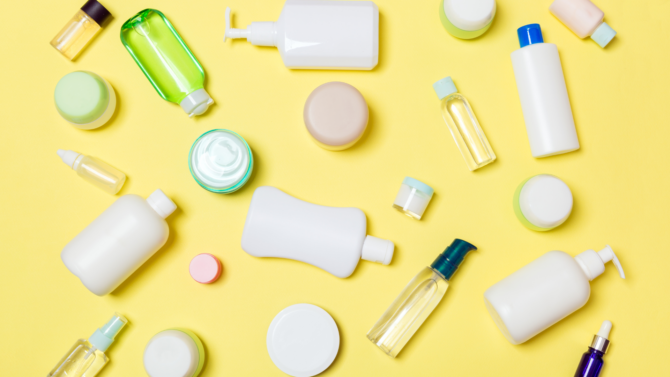The skincare market is overflowing with buzzwords, and the reality is that many of them are thrown into the mix to sell you products you probably don’t need.
Take barrier repair products – the term “barrier repair” has been flying around for a while now, but how do you know if your barrier needs repairing, and is it a big deal?
“The skin barrier is the protective outermost layers of cells held together by a lipid interface consisting of ceramides, cholesterol, and fatty acids,” explains Dr Claudia Morley of Morley Aesthetics. “This prevents the skin from drying out through trans-epidermal water loss, and stops harmful substances from entering our bodies through the skin. A compromised skin barrier can allow irritants to get into the skin and can lead to water being lost. When this happens, it needs to repair and rebuild the lipid interface to be able to maintain its normal function to protect the skin.”
Think of the skin like a brick wall – the skin cells are the bricks and the mortar holding the structure together is made up of lipids, ceramides, free fatty acids and cholesterol.
How does the skin’s barrier get compromised?
Our skin is up against a lot, and even if you’re lucky enough not to struggle with a genetic condition like eczema, psoriasis or rosacea, certain skincare products are out to get you. “Overwashing and over-exfoliating disrupt the lipids that hold together the cells and can strip away the protective layer of skin cells,” says Dr Uzma Qureshi, founder of MySkyn Clinic. You also want to watch out for harsh detergents in cleansers and choose high quality, cosmeceutical skincare products points out independent nurse prescriber Helen Hunt, owner of Helen Hunt Aesthetics and Skincare – “Harsh cleansers and detergents like sodium lauryl sulphate strip the skin of its own natural oils… ingredients in medical grade skincare will nourish the skin without stripping it of vital nutrients.”
This is also where you want to make sure any acids or home-use peels you use are suitable for your skin, and that you aren’t sensitising it through overuse. And, as always, sunscreen! Sun exposure and other harsh environmental conditions are other known enemies of the skin barrier.
Is your barrier disrupted?
“The skin is a thin and fragile barrier and thus can be damaged quite easily,” explains Dr Harryono Judodihardjo, co-director of Belgravia Dermatology. ‘When the skin barrier is damaged, the skin can be infected, inflamed and show signs of allergy such as itch, swelling and redness.”
But a compromised barrier doesn’t always present this dramatically – Dr Qureshi looks out for “all signs that are opposite to those we associate with healthy skin – dryness, itching, redness, irritation, breakouts…” So, if your skin is showing any sign of increased sensitivity, you could well be dealing with an unhappy barrier.
A better barrier
Here’s our experts’ advice on nurturing your skin barrier back to health:
- Wash your face with tepid rather than hot water
- Use at least SPF40 daily
- Protect your skin in extreme weather
- Keep your water intake up
- Use an at-home LED device to replenish the skin barrier’s structure
- If you’re using retinols and/or acids, strip back your routine by cutting down or leaving them out for a while
- Avoid products that contain essential oils and if possible, check for a pH level of 4.0-5.0
- Keep the skin hydrated with ceramides and hyaluronic acid.
The Tweakments Guide Takeaway
If your skin gets dry, itchy or otherwise upset mid-winter, it may well be because your skin barrier isn't in great shape. Treat it gently, keep it hydrated and seal in that hydration with ceramides and fatty acids, to nurture it back into better shape.
Join Our Mailing List
This is the best way to stay in the loop with our latest news and updates, including industry titbits and tailored offers.
Related Stories

Skincare
How To Avoid ‘Festive Face’: Your Skin Survival Plan For Party Season
Festive food indulgences, lots of late nights, and a glass (or two) of champagne – the winter party...

Concerns
Can ‘NoTox’ Skincare Ever Measure Up To Toxin Injections?
For anyone looking for an alternative to wrinkle-relaxing toxin injections, ‘NoTox’ skincare,...

Skincare
Do You Need To Change Your Skincare Every Season?
As a beauty and aesthetics journalist with specific training in cosmetic science, I get asked a lot of...

Skincare
Post-Tweakment Skincare: The Expert Guide
After the excitement of having a tweakment, it can be tempting to sit back and just wait for your results to...







 The Tweakments Chatbot
The Tweakments Chatbot